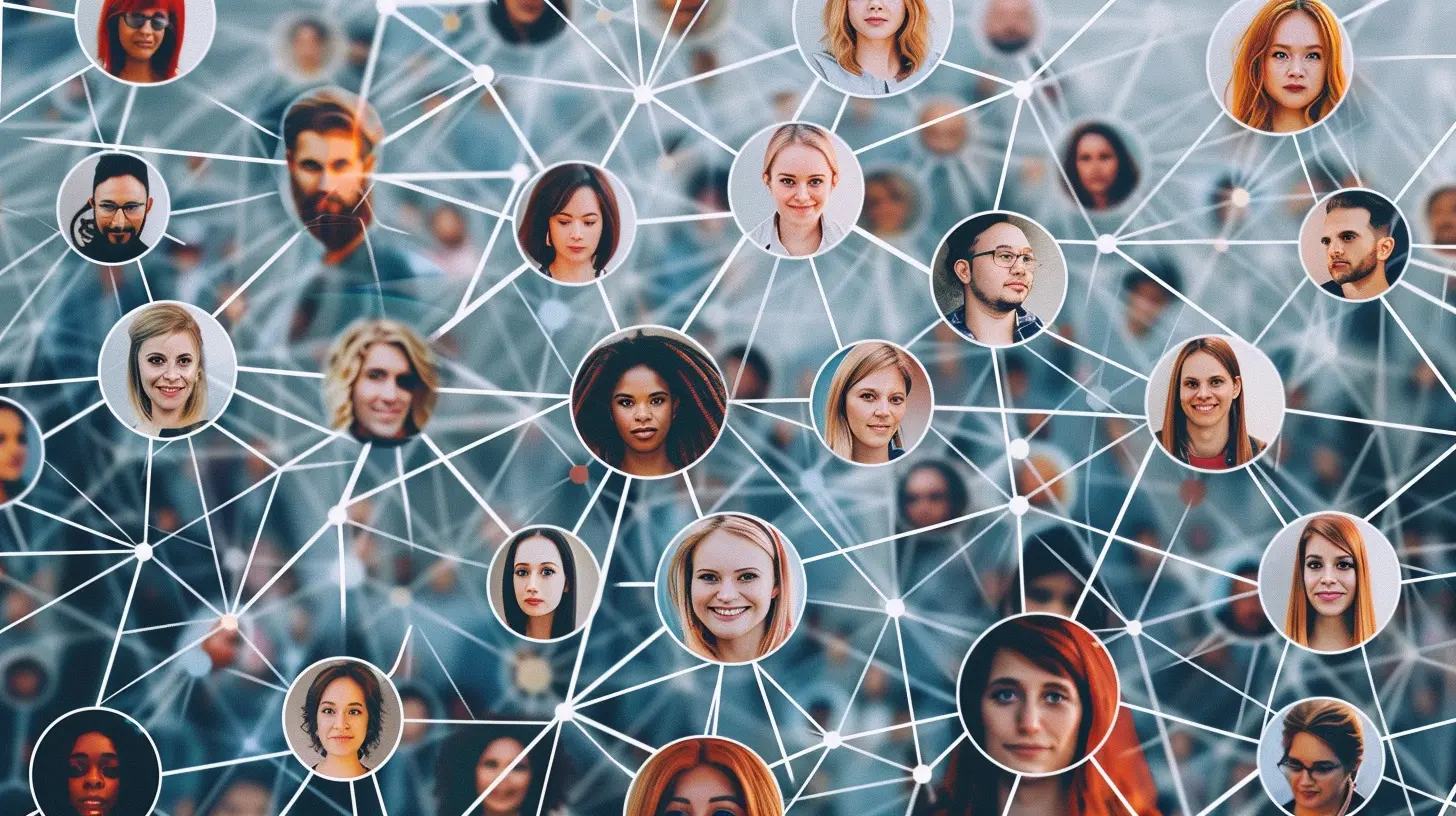The Role of Social Networks in Shaping Political Beliefs
31 October 2025
Have you ever scrolled through your social media feed and suddenly found yourself questioning your political stance? Or maybe, without realizing it, your opinions slowly shifted over time based on the posts you engaged with. Social networks have become more than just platforms for sharing cat videos and vacation photos—they’ve turned into battlegrounds of political influence. But how exactly do they shape our political beliefs?
Let’s dive deep into the mysterious and often unsettling ways social networks mold our perspectives, sometimes without us even noticing. 
The Invisible Hand of Social Media Algorithms
Imagine walking into a bookstore where a mysterious figure hands you books based on what they think you’ll enjoy. Every time you pick up a book, they watch carefully, ensuring that the next one aligns with similar themes. That’s precisely what social media algorithms do.Platforms like Facebook, Twitter, and TikTok track what you like, share, and comment on, then tailor your feed to reinforce those interests. At first glance, that sounds great—you get content suited to your preferences. But in reality, this creates echo chambers, where you’re primarily exposed to information that aligns with your beliefs, while opposing viewpoints get drowned out.
The Bubble Effect: Are We Living in Our Own Reality?
Ever heard of the filter bubble? It’s the idea that algorithms filter out content that contradicts our existing views, trapping us in a digital cocoon of like-minded opinions. The result? We start believing that our worldview is the only rational one because, well, everyone in our feed seems to agree.This is dangerous because democracy thrives on debate. When we’re shielded from alternative perspectives, we lose the ability to critically analyze opposing arguments. Eventually, political discussions become nothing more than shouting matches, with neither side willing to listen. 
Social Media and the Spread of Misinformation
Now, let’s talk about misinformation—the beast lurking in the shadows of social media. While the internet provides access to an endless sea of information, not all of it is credible. In fact, false news spreads six times faster than the truth on Twitter. That’s right—your brain is more likely to see and remember a political hoax than a well-researched analysis.Why Do We Fall for Fake News?
There’s a psychological reason behind this madness. Our brains are wired to embrace information that supports our existing beliefs (confirmation bias). When an article aligns with what we already think, we’re less likely to question its validity. Plus, the emotional nature of fake news—whether it’s shocking, anger-inducing, or heart-wrenching—makes it more shareable than dull, fact-based reports.Fake news isn’t just a minor annoyance; it actively shapes political beliefs. It can sway elections, fuel protests, and even incite violence. And because of the sheer volume of content on social media, fact-checking every piece of information is nearly impossible. 
The Power of Social Influence: How Our Peers Shape Our Politics
Now, let’s talk about the human side of things. You might believe your political opinions are based purely on logic and research, but in reality, social influence plays a massive role.The Bandwagon Effect: Going with the Flow
Ever heard of the bandwagon effect? It’s the tendency to adopt beliefs simply because many others do. When you repeatedly see friends, celebrities, or influencers support a particular political stance, you may unconsciously start leaning in that direction—sometimes without even realizing it.This explains why political trends on social media can gain momentum incredibly fast. A single viral post can ignite movements, shift public opinion, or even redefine political discourse overnight.
The Fear of Social Rejection
Humans are social creatures. We crave acceptance, and the thought of being ostracized from our digital tribe is unsettling. That’s why people sometimes self-censor their opinions online or alter their political perspectives to fit in with their social circle.Think about it—when was the last time you hesitated before posting a political opinion, fearing backlash? That hesitation is proof that social networks don’t just shape what we believe, but also how openly we express those beliefs. 
The Dark Side: Social Media Manipulation and Political Agendas
Governments, political parties, and interest groups understand the influence of social media—and they’re not afraid to weaponize it.Bots, Trolls, and Digital Propaganda
Not everyone on social media is human (as creepy as that sounds). Political bots and trolls are programmed to spread propaganda, distort public perception, and amplify divisive narratives.Some even impersonate real users, engaging in debates to sway opinions or make certain viewpoints seem more popular than they actually are. In the worst cases, social media manipulation has stoked conflicts, influenced elections, and deepened societal divides.
The Illusion of Majority Opinion
Here’s a psychological trick that’s often used: Astroturfing. It’s when organizations create the illusion of grassroots support for a political idea by flooding social media with posts, comments, and hashtags.When you see thousands of people supporting a cause online, your brain perceives it as the "popular" or "correct" opinion—even if it’s orchestrated by a small group with an agenda. This tactic is particularly effective in shaping public sentiment during elections and political crises.
Can We Escape Social Media’s Grip on Our Beliefs?
So, if social networks are shaping our political beliefs without us even realizing it, are we doomed? Not necessarily. There are ways to fight back and reclaim our own critical thinking.1. Burst Your Bubble
Make an effort to consume diverse news sources. Follow people with opposing views—not to argue, but to understand where they’re coming from. It’s uncomfortable at first, but it challenges your thinking and makes you a more informed citizen.2. Fact-Check Before You Share
Before hitting that share button, pause and verify the information. Use reliable fact-checking websites like Snopes or Politifact to ensure what you’re spreading is actually true.3. Be Mindful of Emotional Manipulation
If a post makes you angry, scared, or overly excited, ask yourself why. Political content that provokes strong emotions is often crafted to manipulate your response. Take a step back and analyze the facts objectively.4. Engage in Meaningful Conversations
Instead of arguing in comment sections, try having real discussions. Ask open-ended questions, listen actively, and avoid attacking others. People are more likely to reconsider their stance when they feel heard rather than attacked.5. Take Social Media Breaks
Lastly, unplug once in a while. A digital detox can help you step away from the noise and think critically without the constant bombardment of content.Final Thoughts
Social networks play an undeniable role in shaping political beliefs, often in subtle and subconscious ways. From algorithm-driven filter bubbles to the spread of misinformation and social pressures, our digital environment influences how we perceive the world more than we might like to admit.The good news? We have the power to take control. By staying aware, fact-checking, and seeking diverse perspectives, we can navigate social media without falling victim to its manipulative traps. So next time you scroll through your feed, ask yourself—are you shaping your opinions, or is social media shaping them for you?
all images in this post were generated using AI tools
Category:
Social PsychologyAuthor:

Jenna Richardson
Discussion
rate this article
1 comments
Veda Hernandez
Social networks undeniably influence political beliefs.
October 31, 2025 at 4:04 PM

Jenna Richardson
Absolutely, social networks play a pivotal role in shaping political beliefs by facilitating the spread of information, reinforcing echo chambers, and enabling targeted messaging.


